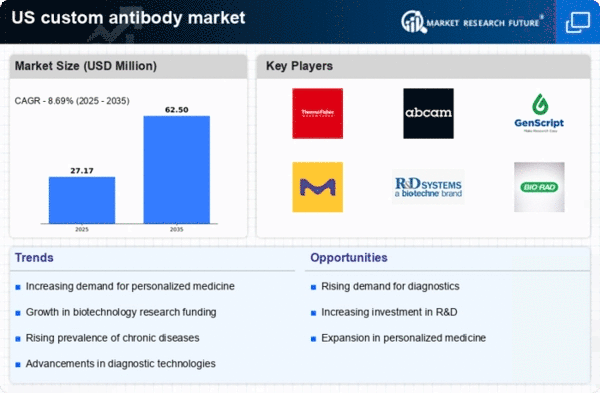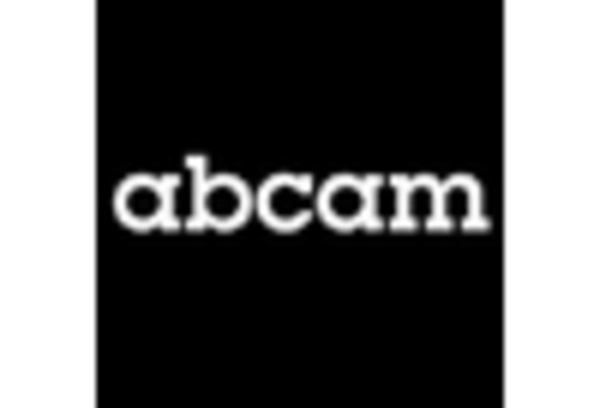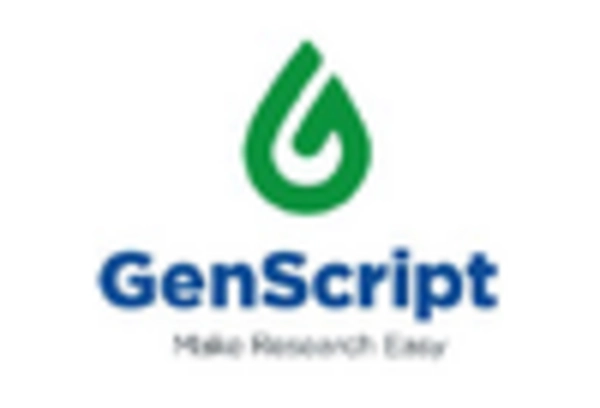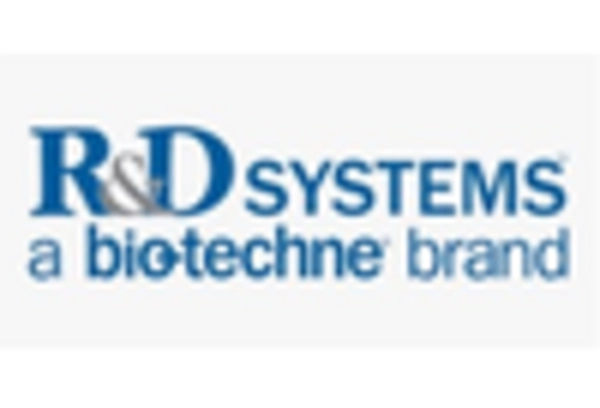Growing Focus on Targeted Therapies
The custom antibody market is experiencing a notable shift towards targeted therapies, which are designed to interact with specific molecular targets. This trend is driven by the increasing prevalence of chronic diseases, such as cancer and autoimmune disorders, where traditional treatments may not be effective. In the US, the market for targeted therapies is projected to reach approximately $100 billion by 2026, indicating a robust growth trajectory. As healthcare providers seek more effective treatment options, the demand for custom antibodies that can be tailored to individual patient profiles is likely to rise. This growing focus on precision medicine is expected to significantly influence the custom antibody market, as pharmaceutical companies invest in developing innovative solutions that cater to specific patient needs.
Rising Incidence of Infectious Diseases
The custom antibody market is also influenced by the rising incidence of infectious diseases, which necessitates the development of effective diagnostic and therapeutic tools. In the US, the Centers for Disease Control and Prevention (CDC) reports a steady increase in the prevalence of various infectious diseases, prompting healthcare providers to seek advanced solutions. Custom antibodies play a crucial role in the detection and treatment of these diseases, as they can be specifically designed to target pathogens. This growing need for effective infectious disease management is likely to drive demand within the custom antibody market, as healthcare systems prioritize the development of tailored solutions to combat emerging health threats.
Increased Regulatory Support for Biologics
The custom antibody market is witnessing a favorable regulatory environment that supports the development and approval of biologics, including custom antibodies. Regulatory agencies in the US, such as the Food and Drug Administration (FDA), have implemented streamlined processes for the evaluation of biologics, which may enhance the speed at which new therapies reach the market. This increased regulatory support is likely to encourage more companies to invest in the development of custom antibodies, as the path to approval becomes less cumbersome. Consequently, the custom antibody market may experience accelerated growth, as more innovative products are introduced to meet the evolving needs of healthcare providers and patients.
Expansion of Research and Development Activities
The custom antibody market is benefiting from a surge in research and development (R&D) activities across various sectors, including pharmaceuticals and biotechnology. Increased funding from both public and private sectors is facilitating the exploration of novel therapeutic applications for custom antibodies. In the US, R&D spending in the life sciences sector has seen a steady increase, with estimates suggesting a growth rate of around 5% annually. This influx of investment is likely to enhance the capabilities of researchers and developers, enabling them to create more effective and diverse custom antibodies. As a result, the custom antibody market is poised for expansion, driven by the continuous quest for innovative solutions to complex medical challenges.
Emerging Applications in Diagnostics and Therapeutics
The custom antibody market is expanding due to the emergence of new applications in both diagnostics and therapeutics. As the understanding of various diseases deepens, the potential for custom antibodies to be utilized in novel ways is becoming increasingly apparent. For instance, custom antibodies are being explored for use in immunotherapy, a promising approach for treating cancer. Additionally, advancements in diagnostic technologies are enabling the development of more precise tests that utilize custom antibodies for disease detection. This diversification of applications is likely to drive growth in the custom antibody market, as stakeholders recognize the potential benefits of integrating custom antibodies into various healthcare solutions.
















